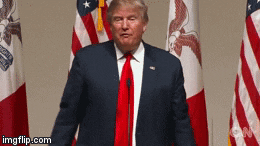If he had admitted he misspoke when saying “Second Amendment people” would be the line of last resort against Hillary Clinton and her Supreme Court nominees, rather than pretend he’d said something else entirely, it would’ve gone a long way toward extinguishing the ensuing firestorm. Instead, the Secret Service—the same law enforcement agency that offers Trump protection as a presidential candidate—has had to sit down with Trump and his campaign to figure out, as he might say, “what the hell is going on.”
MORE: The campaign told US Secret Service that Trump did not intend to incite violence.
— Elizabeth Landers (@ElizLanders) August 10, 2016
Trump and his apologists have made a number of excuses for what he said Tuesday, most of which contradict each other, and all of which contradict the words he actually said. But the key tell isn’t that his spin is dumb—it’s that he never once came forward to tell the public what he just told Secret Service.
The only innocuous way to interpret Trump’s comments (if we strain to be generous) is as a call to organizing. If Hillary Clinton wins, “Second Amendment people” must apply political pressure on her and senators to nominate and confirm judges who support a broad reading of the right to bear arms.
Instead we’ve been told that Trump was fantasizing about a get-out-the-vote operation (a little too late if Clinton is appointing judges), that he was just crossing a PC line (which contradicts the notion that he was merely talking about voter action), and so on.
But his preferred excuse is beside the point. What Trump has not done is say, “If you thought I was suggesting violent resistance to the results of the election, you were wrong, don’t do it!” That would’ve both ended the controversy, and, ironically, demonstrated at least some grasp of the important role careful language plays in politics. But you don’t have to think Trump went on stage intending to threaten Clinton’s life to believe he thinks letting the invitation linger is preferable to admitting error. He’s proven himself pathologically incapable of doing that time and again.
